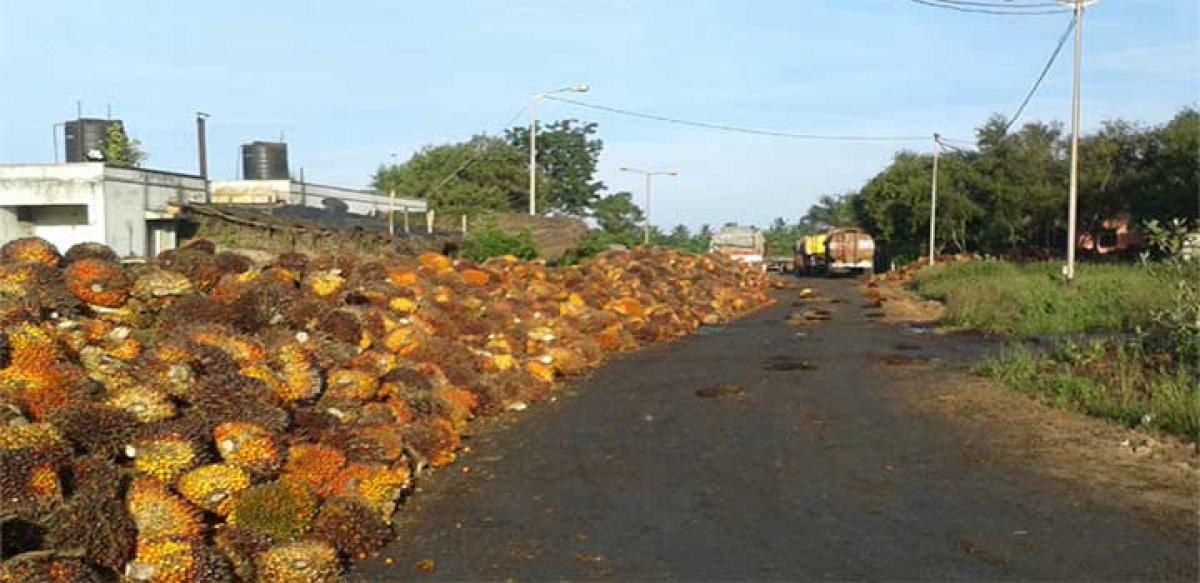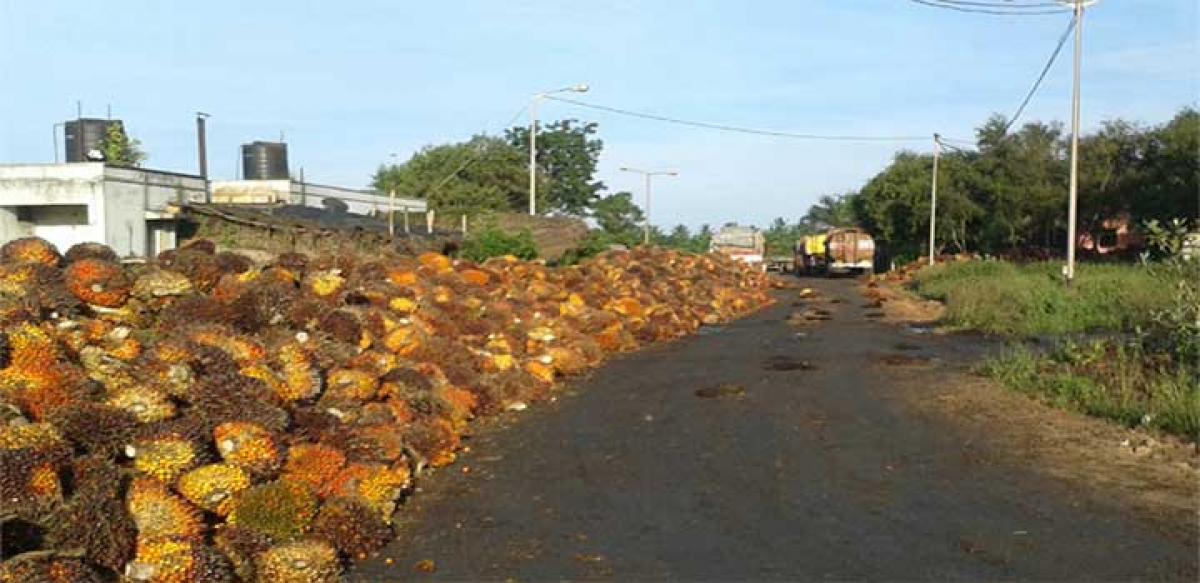Live
- Gaiety marks annual day at Sainik School
- Gunfire in Rayachoti Leaves Two Seriously Injured
- Meditation a profound bridge between divinity, humanity: Guv
- PBD: Communication strategy meet held
- December 2024 Bollywood Movies: A Glimpse of Action, Romance, and More
- President Murmu’s sojourn ends
- BRS govt left huge debt burden: CM
- BJP seeks action against Rahul
- Odisha govt seeks special package for tourism sector
- US Consulate in Bengaluru by January 2nd week: BJP MP
Just In

Despite being one of the largest producers of oilseeds in the world, India is the top importer of edible oils due to the ever-increasing gap between supply and demand and stagnating production of oilseeds.
Hyderabad: Despite being one of the largest producers of oilseeds in the world, India is the top importer of edible oils due to the ever-increasing gap between supply and demand and stagnating production of oilseeds.

Imports of edible oils – around 70 per cent of total demand – have depressed the demand for domestically-produced edible oils. Domestic market is awash with cheap rival palm oil, leaving producers and crushers struggling.
The farmers have lost interest in raising the oilseed crops because of lack of support from both the Central and State governments. The promises made by the Centre that it would expand the area under cultivation of oil palm through the National Mission on Oilseeds and Oil Palm (NMOOP) remains unfulfilled.
The production of oilseeds, such as groundnut, soyabean, sunflower, sesamum, niger and castor, has taken a beating in both the Telugu-speaking states of Andhra Pradesh and Telangana. The reason behind it is lack of support from the governments and dry spell.
According to Union Ministry of Agriculture, cultivation of oilseeds was taken up in 6.10 lakh hectares by August 27 as against the last year’s 7.74 lakh
hectares in AP. In Telangana, it was 3.01 lakh hectares as against 3.31 lakh hectares last year. Of the total 13 units existing in Andhra Pradesh and Telangana, two are being run by the Cooperative Oil Seeds Growers’ Federation Limited, apex organisations of AP and TS. According to Oil Fed sources, the yield expected is around 2.10 lakh tonnes in both the state this year.
The accumulation of Fresh Fruit Bunch (FFB) stocks in 13 oil palm processing units (12 in AP and one in TS) clearly indicates that the Crude Palm Oil (CPO) market remains volatile this year. While both the state-owned Oil Fed units – Pedavegi in West Godavari and Aswaraopet in Khammam were forced to procure the FFBs from their respective regions, the private units are refusing to take the crop for crushing as they do not have adequate storing facilities.
About 40 rice bran extraction units in AP have faced shortage of raw material after the State’s division. Transport expenses along with the 5 per cent VAT on the import of bran from Telangana State or any other State has become an additional burden for the extraction companies in AP. On the other hand, the units in Telangana State are relatively in a comfortable position with the availability of adequate bran supplies.
When asked about the accumulation of Crude Palm Oil (CPO) stocks in crushing units, the TS Oil Fed Senior Manager K V Ranga Reddy said, “Never before, the oil palm processing units in both the States had experienced such a situation as the companies are looking towards the imported CPO as its cost is much lesser than that of local produce.”
The Solvent Extractors' Association of India managing committee member NVSS Prasad, who owns Sri Priyanka Agro Enterprises Pvt. Ltd, Nellore, said, “The need of the hour is to hike the import duty on CPO from the existing 7.5 per cent to 30 per cent and on refined edible oil to 15 per cent from 10 per cent.”
Referring to the ordeals of many farmers in both Godavari districts, he said, that unless the Centre would act swiftly, the crisis would deepen further affecting everyone associated with industry, especially farmers.
According to the data of Solvent Extractors’ Association of India, the import of vegetable oils had gone up to a record level and crossed 100 lakh tonnes during first nine months of the current oil year between November 2014 and July 2015 against 80 lakh tonnes last year.
The imports were up by 26 per cent over the same period of last year. The imports are expected to touch 140 lakh tonnes, estimated to be worth over Rs 65,000 crore for the year ending October 2015 against last year import of 118 lakh tonnes.
By:Adepu Mahender

© 2024 Hyderabad Media House Limited/The Hans India. All rights reserved. Powered by hocalwire.com







